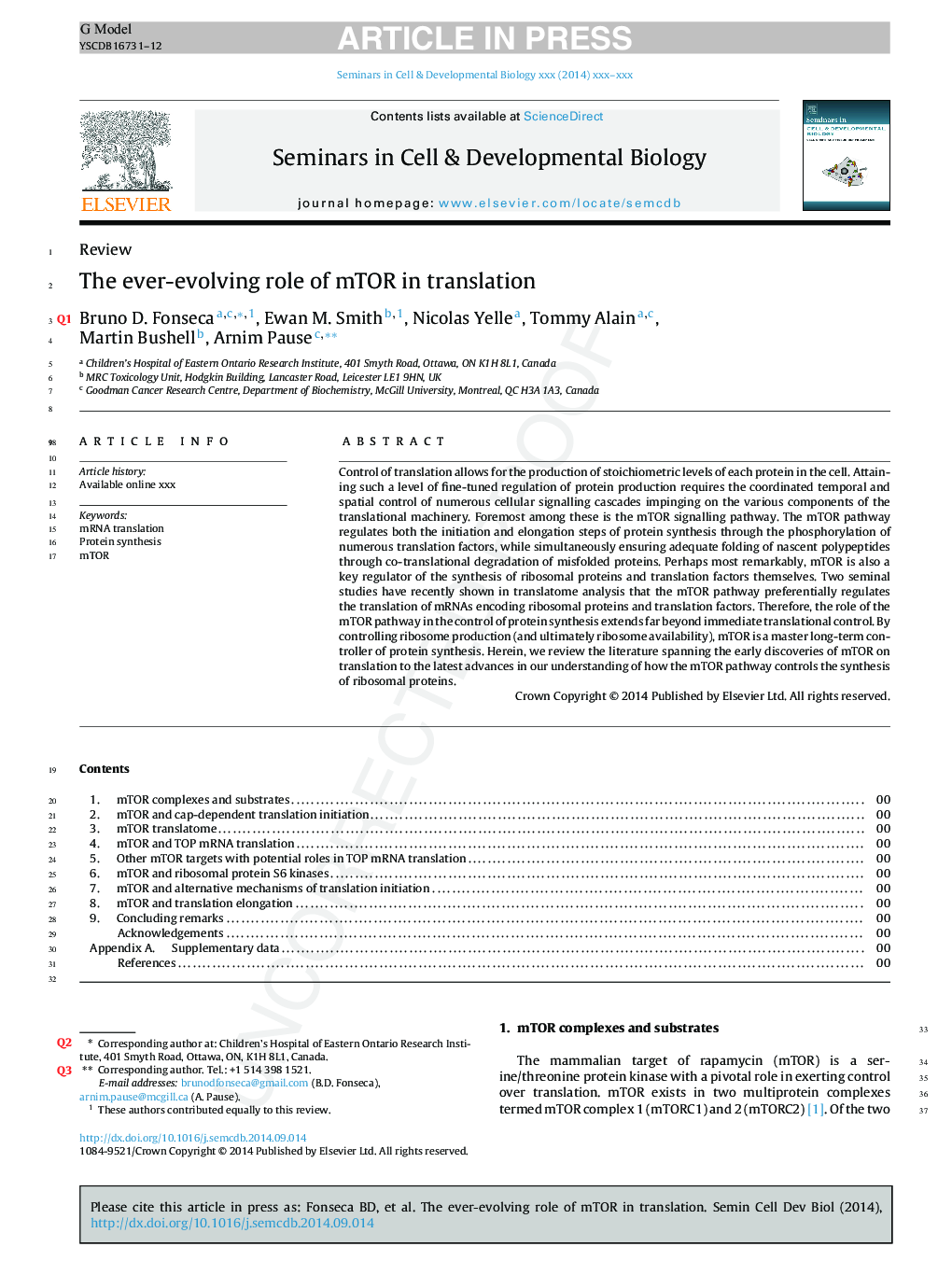| کد مقاله | کد نشریه | سال انتشار | مقاله انگلیسی | نسخه تمام متن |
|---|---|---|---|---|
| 8480498 | 1551386 | 2014 | 12 صفحه PDF | دانلود رایگان |
عنوان انگلیسی مقاله ISI
The ever-evolving role of mTOR in translation
دانلود مقاله + سفارش ترجمه
دانلود مقاله ISI انگلیسی
رایگان برای ایرانیان
موضوعات مرتبط
علوم زیستی و بیوفناوری
بیوشیمی، ژنتیک و زیست شناسی مولکولی
بیولوژی سلول
پیش نمایش صفحه اول مقاله

چکیده انگلیسی
Control of translation allows for the production of stoichiometric levels of each protein in the cell. Attaining such a level of fine-tuned regulation of protein production requires the coordinated temporal and spatial control of numerous cellular signalling cascades impinging on the various components of the translational machinery. Foremost among these is the mTOR signalling pathway. The mTOR pathway regulates both the initiation and elongation steps of protein synthesis through the phosphorylation of numerous translation factors, while simultaneously ensuring adequate folding of nascent polypeptides through co-translational degradation of misfolded proteins. Perhaps most remarkably, mTOR is also a key regulator of the synthesis of ribosomal proteins and translation factors themselves. Two seminal studies have recently shown in translatome analysis that the mTOR pathway preferentially regulates the translation of mRNAs encoding ribosomal proteins and translation factors. Therefore, the role of the mTOR pathway in the control of protein synthesis extends far beyond immediate translational control. By controlling ribosome production (and ultimately ribosome availability), mTOR is a master long-term controller of protein synthesis. Herein, we review the literature spanning the early discoveries of mTOR on translation to the latest advances in our understanding of how the mTOR pathway controls the synthesis of ribosomal proteins.
ناشر
Database: Elsevier - ScienceDirect (ساینس دایرکت)
Journal: Seminars in Cell & Developmental Biology - Volume 36, December 2014, Pages 102-112
Journal: Seminars in Cell & Developmental Biology - Volume 36, December 2014, Pages 102-112
نویسندگان
Bruno D. Fonseca, Ewan M. Smith, Nicolas Yelle, Tommy Alain, Martin Bushell, Arnim Pause,